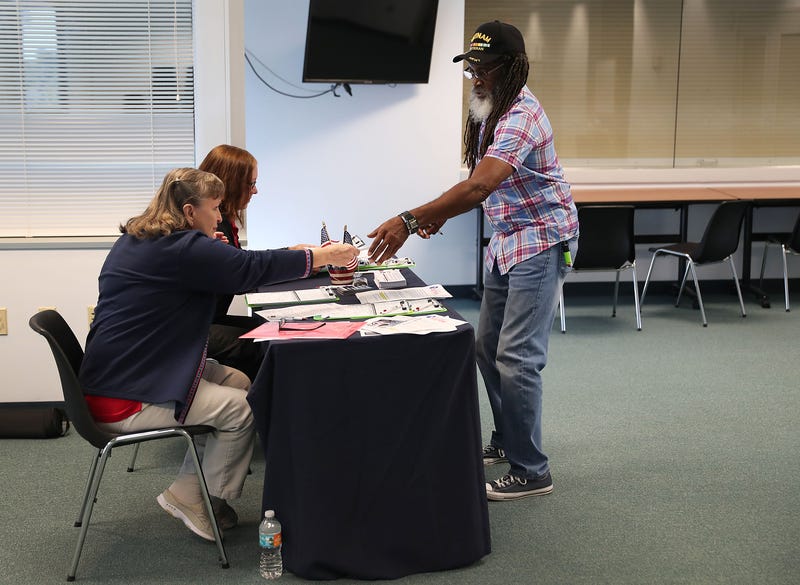
State lawmakers are working to restore felons' voting rights say 'time is of the essence' following a ruling by the Minnesota Supreme Court on Wednesday saying the rights of felons to vote is not allowed by their interpretation of the law, which effectively put the decision back in the hands of the legislature.
The House and Senate are now looking at a bill that would change those laws, and legalize felons to vote immediately upon their release from prison. It has already passed the House, and is expected to pass the Senate as well.
House author, Representative Cedrick Frazier (DFL- New Hope), says the current system that only allows them to vote after they've completed probation, parole or supervised release is discriminatory and outdated.
“There are tens of thousands of individuals, approximately 55,000 in the state of Minnesota, that are in their communities, deemed to be safe, back with their families, working jobs, paying taxes, being productive, but they don’t have one of the most fundamental things in our Democracy and that’s their voice,” says Frazier. “Their right to vote.”
Most state Republicans are against the change and have argued that those who were committed of crimes should continue to face penalties.
The Minnesota Supreme Court’s Schroeder v. Simon case centered on constitutional language and the meaning and effect of the phrase “unless restored to civil rights.” Minnesota’s Supreme Court did not rule to restore voting rights to people with felony records who still haven’t satisfied parole or probation saying that the people of Minnesota made the choice to deny those rights to people convicted of a felony.
Justice Paul Thissen concluded in the ruling, “There may be many compelling reasons why society should not permanently prohibit—or perhaps prohibit at all — persons convicted of a felony from voting. But the people of Minnesota made the choice to establish a constitutional baseline that persons convicted of a felony are not entitled or permitted to vote, and the people of Minnesota have not seen fit to amend the constitution to excise the felon voting prohibition.”
Minnesota Secretary of State Steve Simon issued the following statement after publication of the Court's opinion:
"The Minnesota Supreme Court has made it clear that the future of voting rights for Minnesota residents who have left prison behind lies in the hands of the legislature. While our office defended the law as it is currently written, I believe that the policy is long overdue for a correction. If a person is deemed by a judge or jury to be worthy enough and safe enough to live in our community, then it is entirely reasonable to allow that person to have a say about who governs them. This restoration of voting rights is good for all of us, because we know that when people have a sense of ownership in their community they are far less likely to commit another crime. I will continue to be a strong advocate for legislation, already passed by the House, that will allow those who have left prison behind to rejoin our democracy and vote in our elections."
Frazier says the current law is discriminatory.
“These laws were put in place to particularly deprive individuals from those communities of their right to vote so they could not have political power and be able to influence the laws or policies or resources that were coming, into their communities,” Frazier explains.
Frazier also added that it is a good practice to reintegrate felons who served their time back into society.
“That data tells us that when folks are able to participate civically, in a political process, they're less likely to reoffend and end up back in an incarcerated state,” says Frazier. “We should listen to that data and make policies accordingly. And give people their voices and their right to participate in our electoral process.”
Should the Senate pass the bill as expected, Governor Tim Walz has said he will sign it.

